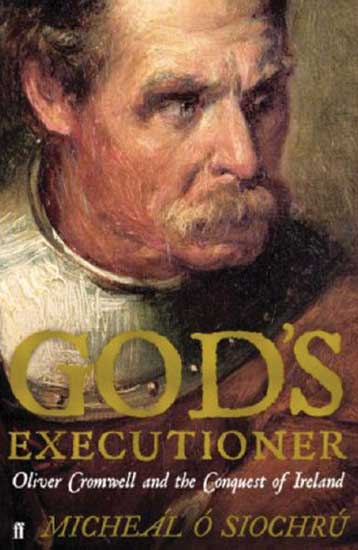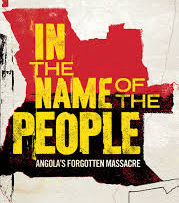 The image of Oliver Cromwell has, ever since his death, been unendingly controversial among all those interested in British (meaning, of course, usually mainly English) history and its implications for the present. The controversy has come to be seen as mostly a left-right one, with liberals, radicals, socialists and, of course, anti-monarchists celebrating Oliver’s memory, conservatives damning it. Even today, it’s tempting to stereotype Gordon Brown as a dour, puritanical, Cromwellian Roundhead, David Cameron as a Cavalier.
The image of Oliver Cromwell has, ever since his death, been unendingly controversial among all those interested in British (meaning, of course, usually mainly English) history and its implications for the present. The controversy has come to be seen as mostly a left-right one, with liberals, radicals, socialists and, of course, anti-monarchists celebrating Oliver’s memory, conservatives damning it. Even today, it’s tempting to stereotype Gordon Brown as a dour, puritanical, Cromwellian Roundhead, David Cameron as a Cavalier.
Yet until well into the 19th century if not beyond, the Cromwellian memory wars were at least as much religious as political. Positive appraisals of Oliver’s legacy were favoured especially by Nonconformist and Evangelical Protestants, and for that matter non-Christians: it was under Cromwell’s rule that Jews were granted civil rights in England for the first time. High Anglicans and Catholics held far more hostile views.
In Ireland, by contrast, there was until very recently notably little such debate. Cromwell’s image there was and remains overwhelmingly, near-consensually negative – indeed he is seen in the main as a bloodthirsty, murderous monster. Not even Irish Protestants and Ulster Loyalists celebrate him.
The reason for that stark contrast is clear and simple enough. Cromwell only spent about nine months in Ireland all told, but in those months he transformed the country’s face and future. His rapid crushing of Irish and Royalist resistance displayed remarkable military skill, and was followed by a comprehensive new political settlement. Yet the military success was accompanied by shocking brutality, while the new Cromwellian political order was a kind of dictatorship involving religious persecution and in some regions what today might be called ethnic cleansing. Most notoriously, Oliver’s army perpetrated large-scale massacres when capturing the cities of Drogheda and Wexford. There’s been much debate over just how many were killed, whether many of them were women and children, and whether there were any extenuating circumstances for Cromwell’s savagery. He claimed himself that the bloodshed actually saved lives in the longer term, since it shocked his enemies elsewhere into surrendering quickly. It’s also sometimes pointed out that this was no straightforward national conflict: many of those massacred were not Irish at all, but English Royalists.
More contentiously, a few British and even Irish historians have recently argued that Cromwell’s Irish campaign was not some uniquely barbarous episode, but pretty routine and even restrained by the standards of warfare in that age. Certainly Drogheda and Wexford witnessed massacres of civilians and prisoners on a greater scale than anything that happened in England or Wales. Overall, indeed, 17th-century conflict in both Ireland and (to a lesser extent) Scotland was more bitter and unrestrained than that in England. It has been estimated that 3.7 per cent of England’s and Wales’s population died in the wars. For Scotland, it was more like 6 per cent, and in Ireland maybe a staggering 40 per cent. Continental European war in that era, however, involved numerous comparable incidents to the Drogheda and Wexford massacres. Those who would “defend” Cromwell tend to point to events in central Europe, while those who condemn his record compare instead with England.
Micheál Ó Siochrú’s new book is a forceful and largely convincing restatement of the case for the prosecution. It also offers a broader overview of events in both Ireland and Britain during Cromwell’s lifetime – indeed nearly half the book is not really about Oliver at all but a general survey of the era. This means that, although it’s an excellent introduction to the subject and the issues, based on immense research, it has surprisingly little new to say.
The book’s very title leads one to expect that the role of religion in the conflict, and in Cromwell’s own behaviour, will be highlighted. In fact, Ó Siochrú says disappointingly little about this, and certainly sheds no new light on the long debate over whether Cromwell was a religious fanatic and bigot, or rather a moderate and tolerant man by the standards of the day – or, for that matter, an opportunist and hypocrite who conveniently claimed divine sanction for whatever suited him best at a particular moment. New Humanist readers may be expected to have a special interest in that theme: how far should religious beliefs and schisms be held to blame for what Cromwell did in Ireland, for brutal English behaviour there more generally, or more broadly still for bloodshed and barbarism right across Britain’s, Ireland’s and Europe’s 17th century? Ó Siochrú’s book, for all its many strengths, has no new answers and little new insight to offer here.
Irish poet Brendan Kennelly, in his remarkable 1983 Cromwell, wrote of how the Lord Protector “appears and disappears in history, biography, speeches, letters, legend, folklore, fantasy, etc.” Something on those lines, tracing Cromwell’s posthumous image and reputation in Ireland across the centuries, might well have been more innovative and thought-provoking than Ó Siochrú’s solid but unexciting rendition of the story.
God's Executioner is published by Faber

